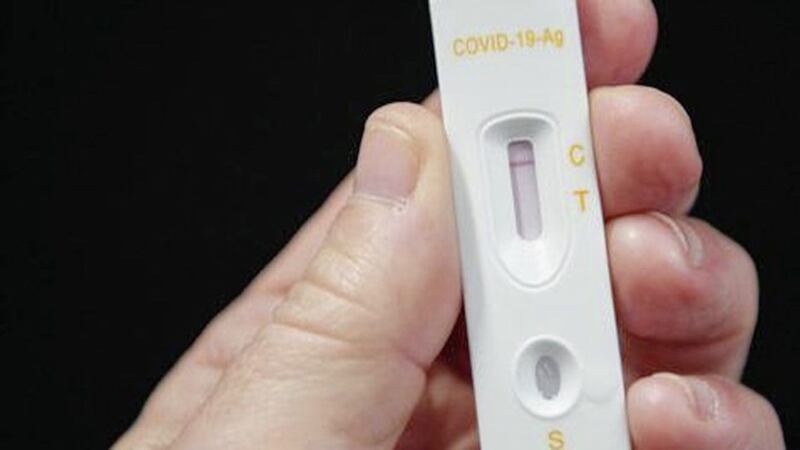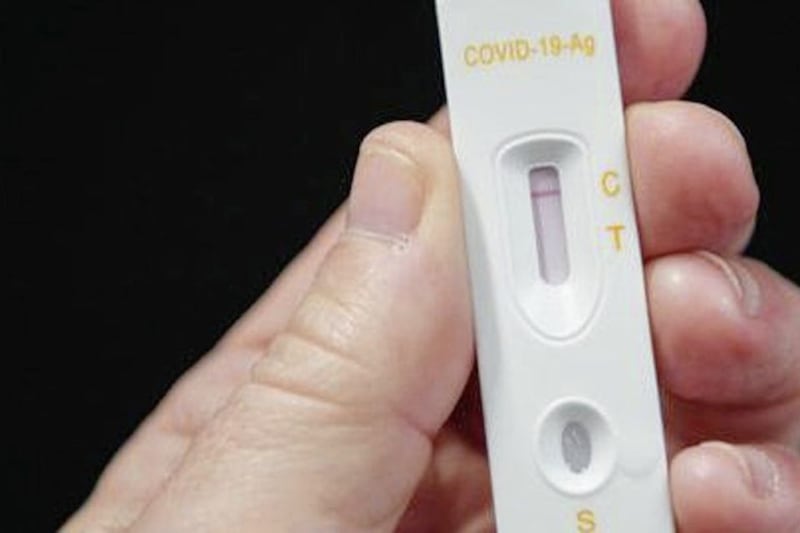RAPID Covid tests should be introduced for families of children returning to school in Northern Ireland to reduce transmission by "flagging up" symptom free cases, according to a leading medic.
Dr David Farren, a consultant specialising in infection control, also believes the free kits, which are being distributed to households across England where there are primary and secondary pupils, should be made available for all healthcare staff in the north.
Known as 'lateral flow tests', they are similar to pregnancy tests and are relatively cheap. They return results within 30 minutes.
They are being offered to parents of school age children in England to test themselves for coronavirus twice a week as schools prepare to re-open next Monday.
In Northern Ireland, a phased return will begin on the same date with nursery and primary one to three pupils among the first cohort.
Dr Farren, who heads up the British Medical Association's (BMA) consultant committee, expressed concerns about the impact of the pandemic on children - and said getting them back to school safely was vital.
"There are a lot of different aspects to this pandemic and we have seen what’s happened among the elderly. But I really worry about kids, I really worry about the mental impact on children and on their mental health in the long term," he told The Irish News.
"If we’re trying to get back to a normal society and a normal life for kids, getting them back to school is a big thing. These tests are an easy, cheap intervention that could be done to give additional assurance and provide additional safety," he said.
"It’s not going to stop occasional people testing positive but what it is going to stop is them spreading it before they know they’re positive and potentially exposing classmates and teachers and people who work in schools.
"We know that most of the cases in young kids where they’ve had it, it’s actually been a household member who has carried it. It makes sense to test parents."
The BMA representative said he was aware that "extensive" lateral flow testing was ongoing for his frontline colleagues in England.
"These tests have interrupted transmission multiple times, where someone has been picked up asymptomatically shedding. They then normally develop symptoms in the next couple of days, so you’ve caught them early and prevented exposure to colleagues and patients.
"I’m a microbiologist and infection control doctor but we don’t use lateral flows at all apart from small pilots for locums coming from England before Christmas. Similarly I believe they were used for medical army personnel who also came over from England. We would love to have them for our healthcare staff. If our staff require tests they generally have to be symptomatic are are testing using a different test."
When asked if the Department of Health will follow England's lead and roll out testing for parents of school age children, a spokeswoman said further expansion was "under consideration".
Health minister Robin Swann last week announced plans to "substantially increase" asymptomatic testing for "communities, businesses and emergency services".
Pilot test schemes were undertaken at Queen's University Belfast and two Limavady schools in December.
Dr Farren said the tests, while still needing "refined", added an "extra layer" of assurance as the north prepares to exit lockdown restrictions.
"We know that around one in three people with Covid are asymptomatic. They will not know if they are shedding the virus particularly if they are a healthcare worker or a pupil or teacher in a school - and potentially exposing it to other people," he added.
"Testing is a big challenge, in that the public people think if they get a negative result they’re fine. But no test can tell the future. There's a 14-day window between exposure and developing symptoms potentially. The test is only accurate at the time it’s taken. There will be people who’ll take the test one day and it’s negative, the next day it’s positive.
"So these tests, undertaken twice a week, would certainly would have the potential to pick up an incident before it would have arisen normally."




